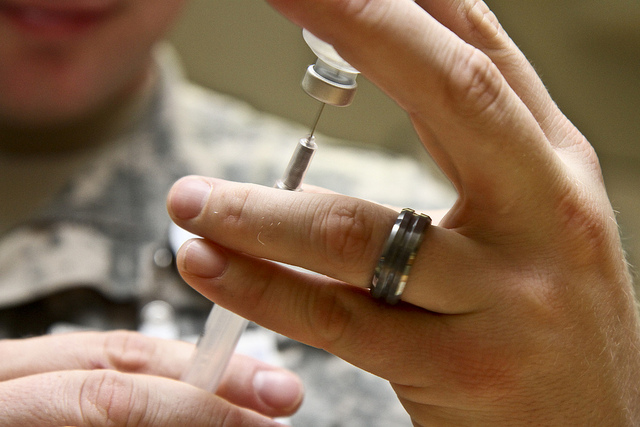Medicare covers a number of vaccines older adults need to prevent against serious illness and hospitalization, but millions of older adults are not getting them. Many end up unnecessarily ill with shingles, pneumonia and flu. To lower your risk of getting seriously ill, ask your doctor about the vaccines you need.
According to the CDC, older adults need several different vaccines:
- An annual flu shot
- Tetanus, diphtheria, pertussis (whooping cough)–Tdap
- Zoster (shingles)
- Pneumococcal
- Varicella (chicken pox), depending upon whether had chicken pox as a child
Flu shot: Almost four in ten older adults (37 percent) do not get the flu shot. Here’s why it’s worth it to get the flu shot. If you have any doubts about the value of the flu shot, you should know that the CDC estimates that more than 100,000 older adults end up hospitalized for flu each year. Even if you’ve never had the flu, you should get the flu shot.
Pneumococcal vaccine: Almost four in ten older adults (39 percent) do not get one or both pneumococcal vaccines. These vaccines keep people from getting pneumonia and meningitis. And, Medicare covers the pneumonia vaccines in full. Pneumonia is a lung infection that can cause fever and chills; it can make it hard to breathe, and it can be life-threatening.
Tetanus shot: Tetanus is another disease that millions of older adults do not protect themselves against. More than four in ten older adults have not gotten the tetanus vaccine in the past 10 years. And, more than eight in ten have not received the Tdap vaccine. While there are few reported cases of tetanus each year, it is extremely serious. Among other symptoms, people with tetanus experience a tightening of their jaw muscles and cannot open their mouths.
Shingles vaccine: According to the CDC, one in three people over 60 will get shingles. Shingles tends to be excruciatingly painful and causes a severe and long-term blistering skin rash. The pain can last for months and even years. Almost seven in ten older adults (69 percent) do not get the shingles vaccine. If you had chicken pox as a child, you are at risk for shingles in later life. While the vaccine does not prevent people from getting shingles, it reduces the chances by half and it reduces the long-term pain for people who do get shingles. Medicare covers the full cost of the shingles vaccine.
Here’s more from Just Care:










